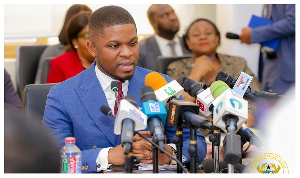Bole, (N/R), July 4, GNA - Vice President John Dramani Mahama, on Saturday launched the 52 million Ghana Cedis National Mango Plantation Project, aimed at developing mango orchard for a five-year period. The project, which is private lead and sponsored by the Export Development and Investment Fund (EDIF) is targeting a total of 20,000 acres and would benefit Northern, Upper East, West, Brong Ahafo regions and the Northern part of the Volta Region.
Mrs Hannah Tetteh, Minister of Trade and Industry launched the project on behalf of Vice President at Bole in the Northern Region, which is expected to generate about 30 metric tones of mangoes and attract a yield of about 37 million Ghana cedis annually.
Mr Mahama said the project provides an opportunity and a lot of promise to the beneficiary communities and urged the people to use it to turn their economic fortunes around.
He said government would not relent in its assistance to farmers by assisting them to improve upon their production. Mr Mahama said government is also committed to the development of non-traditional crops such as the shea tree and dawada by ensuring that value is added to them to make them exportable commodities. He said the government would not neglect other sectors of the economy because of the discovery of oil, explaining that agricultural productivity would be sustained to promote industrial growth.
Mr Kwesi Ahwoi, Minister of Food and Agriculture (MOFA) said in a speech read on his behalf that the Ministry is implementing an Export Marketing and Quality Awareness Project (EMQAP) with the aim of developing the value chain of certain crops including mango. He said under the project, shed nine of the Tema harbour has been refurbished as a fruit terminal while sea pack houses are also been constructed to enhance quality of exportable fruits in partnership with the Federation of Association of Ghanaian Exporters.
He said due to the intervention of EMQAP and other stakeholders it was estimated that mango exports went up from less than 500 metric tones to more than 1,000 metric tones between 2006 and 2008. He expressed the hope that with the support from EDIF, farmers would increase production tenfold by 2015. Mr Ahwoi said the intervention of EDIF over the years had created jobs for 200 exporters and 300 farmers groups in non-traditional export incomes as well as foreign exchange earnings.
The Agriculture Minister said one of the main challenges facing the mango project was the indiscriminate felling of trees of commercial value such as dawada and the shea tree and therefore stressed the need for the integration of agro-forestry and cropping systems of farming without excessively cutting down of important trees. He also warned that bushfires and animal browsing threatened the survival of the mango trees during the dry season and urged the district assemblies and the youth to create the necessary awareness and develop strategies to address the challenges. Mr Moses Bukari Magbenba, Northern Regional Minister said it was estimated that the mango project would produce about 24,000 metric tones of mangoes for the local market for processing locally. This he said is expected to increase by 89,000 metric tones when the project is fully operational.
The revenue returns from the local processing activity the Minister said is programmed to yield about 8 million Ghana cedis, adding that the local component is expected to form the basis for the local agro-industrialisation in Ghana. He said the project revolves around pushing lead farmers as nucleus farmers to pull along out growers such as Farmer Based Organisations to facilitate the transformation of subsistence hand to mouth existence into export led competitive economy. He said each nucleus farmer would be producing 50 acres of mangoes with 75 farm families in adjoining nearby communities selected to cultivate two acres each on a contiguous land to serve as a block farm. 4 July 10
Regional News of Sunday, 4 July 2010
Source: GNA












